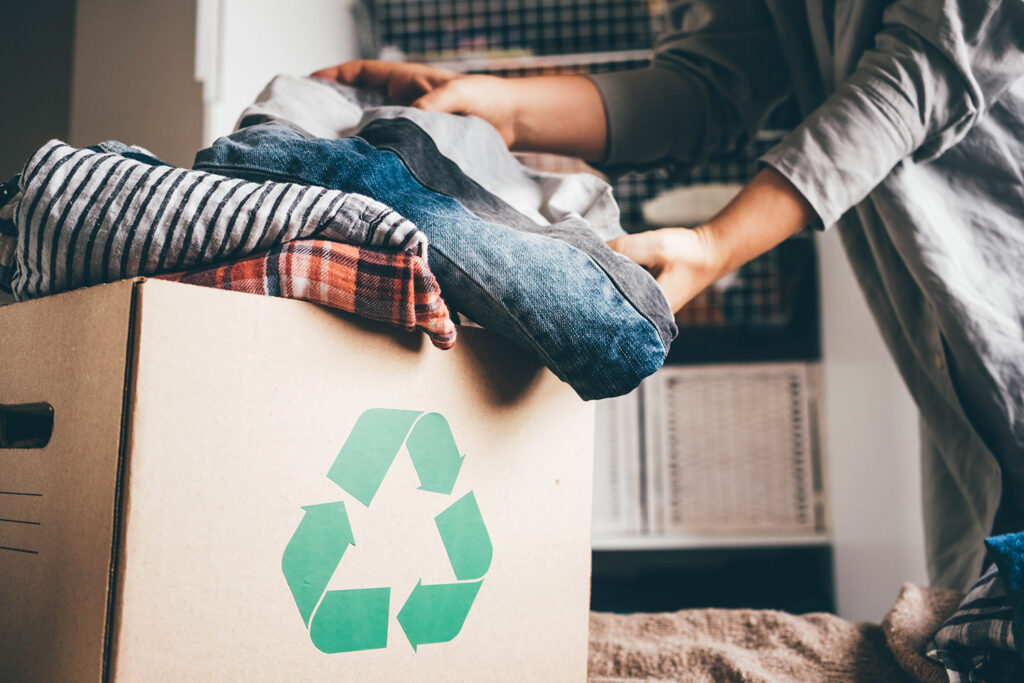The Automatic sorting for Circular Textiles ACT demonstrator (ACT UK) is a two-year initiative which was established by the UK Fashion and Textile Association (UKFT) and brought together retailers, manufacturers, recyclers, charities and academic institutions to explore how to scale textile-to-textile recycling domestically.
According to the group, the UK discards around 744,000 tonnes of non-rewearable textiles each year, most of which is exported, landfilled or incinerated.
The ACT UK project examined the technical, economic and social challenges of turning this waste into a raw material, running end-to-end trials from collection through to producing fibres, yarn and garments.
Designs for an ATSP facility
Included in the report was ACT UK’s plans to develop an engineering blueprint for an ATSP facility, which aims to be operational in 2026.
The system has been designed to automate sorting by fibre type and colour, to deliver consistent feedstock for fibre-to-fibre recyclers at the scale required.
Adam Mansell, UKFT CEO, said: “The aim of the project has always been clear: to lay the groundwork for a facility that turns waste into opportunity, and to support the UK market in moving towards circularity.”
The project focused on an initial 25,000 tonne per year facility, with the aim to scaling up to 50,000 tonnes as the machinal and chemical recycling markets grow.
Engagement and collection trials
ACT UK also ran six citizen pre-sorting and collection trials with partners including Tesco, Marks and Spencer, Oxfam, Reskinned, Dunelm and several local authorities.
Trials tested bring banks, in-store drop-offs and postal schemes to encourage separating rewearable and non-rewearable textiles.
While results showed strong public appetite and increased donation volumes, accuracy in pre-sorting fell short of the standard required for direct ATSP input.
Call for action
The report warned that failing to act risks losing economic opportunities to overseas markets already investing in textile recycling.
The consortium urged co-ordinated action from government, industry and consumers to realise the UK’s first operational ATSP and integrate circular materials into domestic manufacturing.
Mansell added: “What was really encouraging about the ACT UK project was how it brought together the entire textile supply chain – from major retailers to local manufacturers, technology specialists to recyclers – to tackle a global challenge with shared purpose.
“This report shows what is possible when industry works together, and it sets out a clear route forward.”
The report suggested that the next phase will require investment, policy support and sustained collaboration to build the infrastructure and consumer participation needed for a fully circular UK textiles ecosystem.
In March, UKFT launched a new membership for the used textiles sector to support businesses in the reuse and recycling sector.






Subscribe for free